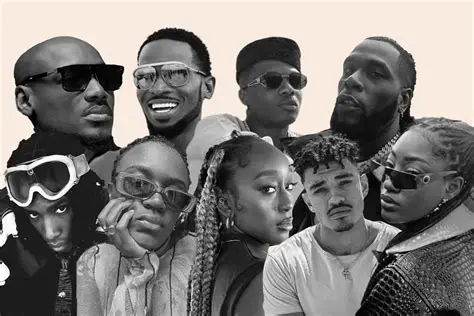The Price of Stardom: How Overpricing Is Quietly Hurting Afrobeats
There’s a quiet tension brewing beneath the glossy surface of Afrobeats’ global success one that isn’t about talent, creativity, or sound, but money. Fees are skyrocketing. Show rates, feature prices, appearance charges everything has inflated to a level that even insiders are beginning to call unsustainable. The Afrobeats dream has gone global, but with it comes a growing fear: are the artists pricing themselves out of their own culture?
The numbers speak for themselves. Top-tier Nigerian acts are now demanding performance fees rivaling international pop stars, with some mid-tier names reportedly charging sums that once belonged only to festival headliners. While the ambition is understandable Afrobeats artists deserve to earn their worth, the growing trend of overpricing has begun to strain the ecosystem that helped them rise in the first place. Local promoters can’t keep up. Smaller festivals and community shows once the lifeblood of the movement are disappearing under the weight of unattainable budgets.
This inflation doesn’t just affect promoters; it limits access. The genre that once thrived on connection and accessibility is becoming gated by economics. In Lagos, Accra, Nairobi, and even London, grassroots events that once introduced new fans to Afrobeats’ energy are struggling to book acts. When an artist who came up performing in small spaces suddenly prices out those same spaces, it creates a cultural gap a disconnect between the artist and the audience that made them.
There’s also the ripple effect on collaboration. Features are now currency, and many emerging artists can no longer afford to pay for one. In the past, collaborations were a key part of Afrobeats’ community spirit young acts got their breakthrough co-signs and unexpected pairings. But with some features now costing tens of thousands of dollars, those bridges are collapsing. What used to be a musical exchange has become a transactional market. The result? Less experimentation, fewer risks, and a narrowing of the sound.
The irony is that Afrobeats’ global power was built on collectivity. It was never just about who was the biggest star; it was about the energy of the scene, the interdependence of artists, DJs, dancers, and producers who all contributed to a living, breathing sound. That ecosystem is what drew the world in. But as the business scales, the relationships that sustained it are starting to feel more corporate than creative.
Of course, it’s not hard to see where this comes from. Global recognition has reshaped expectations. Artists who once earned in naira are now calculating in dollars, comparing their worth to Western peers and demanding parity. There’s pride in that after years of being underpaid, Afrobeats artists finally understand their global value. Yet the context matters: the markets aren’t the same. The infrastructure, audience size, and corporate support systems that sustain global stars in the U.S. or Europe don’t yet exist fully in Africa. Trying to import those prices without the same ecosystem is like building a mansion on shifting sand.
Even from a branding standpoint, overpricing can backfire. Artists risk saturating themselves with high-end expectations that not every market can sustain. When fans in Nigeria can no longer afford to see their own stars live, the emotional connection weakens. When festivals skip booking local acts because the budget can only afford one international headliner, the narrative shifts from Afrobeats as a collective force to Afrobeats as a luxury brand. That might sell tickets in the short term, but it starves the culture in the long run.
The question then becomes: where is the balance? There’s a difference between fair compensation and financial isolation. Artists deserve to earn from their craft after all, the road to fame in Afrobeats is rarely easy. But sustainability matters. The goal should be to grow the genre’s economy, not just individual bank accounts. That means nurturing spaces where smaller promoters, indie curators, and local festivals can still thrive. It means rethinking how to scale without alienating the base.
There’s also room for innovation. Revenue models don’t have to revolve entirely around show fees. Licensing, brand partnerships, streaming strategies, and digital fan engagement can create balance without bleeding the local circuit dry. Afrobeats is at its most powerful when it feels communal when everyone, from street DJ to superstar, benefits from the movement. The current trend risks turning that movement into a hierarchy.
It’s not too late to reset. The global music market is watching, and Afrobeats still has a chance to define its own rules rather than inherit those of other industries. The artists who will last aren’t the ones who charge the most they’re the ones who build the widest bridges. Pricing should reflect not just fame, but purpose. The culture thrives when artists play for their people, not just their invoices.
At its heart, Afrobeats was never about luxury; it was about liberation. It was about expression that reached everyone, from the mainland to the mansion. If overpricing continues unchecked, the genre risks losing that universality the very soul that made the world listen in the first place. The money matters, but the mission matters more.


Leave a Reply